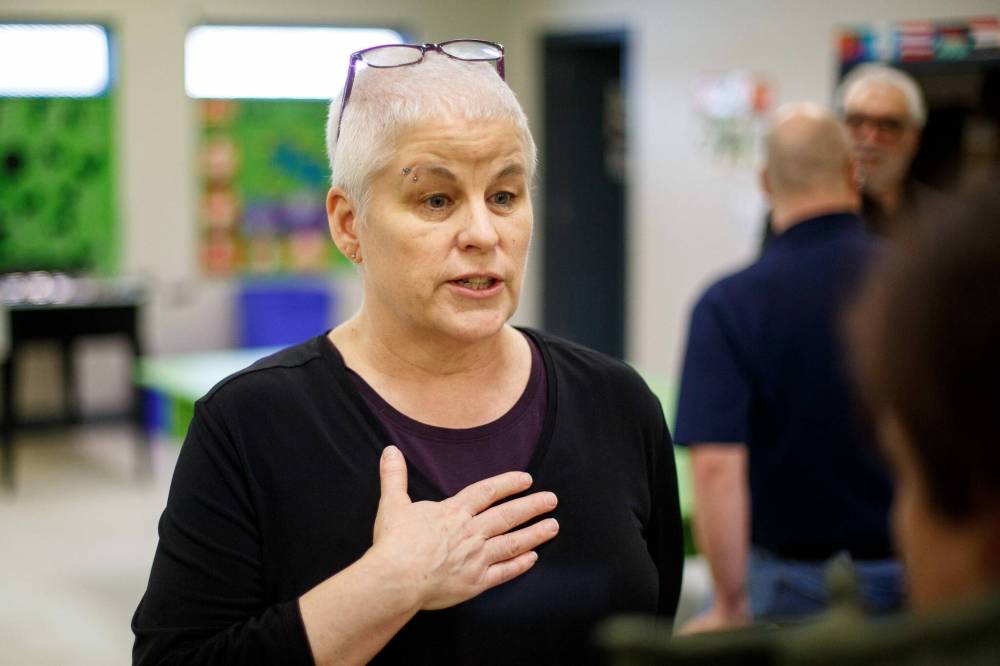Absence of supports guarantees repeat offences
Advertisement
Read this article for free:
or
Already have an account? Log in here »
To continue reading, please subscribe:
Monthly Digital Subscription
$0 for the first 4 weeks*
- Enjoy unlimited reading on winnipegfreepress.com
- Read the E-Edition, our digital replica newspaper
- Access News Break, our award-winning app
- Play interactive puzzles
*No charge for 4 weeks then price increases to the regular rate of $19.00 plus GST every four weeks. Offer available to new and qualified returning subscribers only. Cancel any time.
Monthly Digital Subscription
$4.75/week*
- Enjoy unlimited reading on winnipegfreepress.com
- Read the E-Edition, our digital replica newspaper
- Access News Break, our award-winning app
- Play interactive puzzles
*Billed as $19 plus GST every four weeks. Cancel any time.
To continue reading, please subscribe:
Add Free Press access to your Brandon Sun subscription for only an additional
$1 for the first 4 weeks*
*Your next subscription payment will increase by $1.00 and you will be charged $16.99 plus GST for four weeks. After four weeks, your payment will increase to $23.99 plus GST every four weeks.
Read unlimited articles for free today:
or
Already have an account? Log in here »
Hey there, time traveller!
This article was published 12/07/2024 (479 days ago), so information in it may no longer be current.
It only took about 10 minutes for Brendan Jordan Lee White to make the most compelling case to date for better post-release treatment and support.
White was arrested and charged for a series of unprovoked assaults on four people, including two seniors, on June 26 between 10:15 and 10:25 a.m in Winnipeg’s Exchange District. It was the latest in a series of similar incidents White had been involved in during a long and violent criminal past.
It would be easy to dismiss White as just another case of random street violence except for one thing: a closer look at his criminal history shows that although he was clearly and desperately in need of help, none was forthcoming.

MIKE DEAL / FREE PRESS Files
Social Planning Council of Winnipeg executive director Kate Kehler
White suffered a traumatic brain injury in 2017, which led to struggles with substance abuse and mental illness. He had been ordered to undergo counselling and addictions treatment, but it is unclear whether he was actually able to access those supports. What is known is that every time he was released from custody — either on remand or upon completion of a sentence — he quickly became homeless and often lashed out violently against strangers.
At a March sentencing hearing, his lawyer told the court that White had no family to help him and that upon release, he would be moving to Brandon because he believed he would have a better chance there of accessing a homeless shelter.
It may surprise some, but offenders are regularly released into a life of homelessness, relying on an overburdened shelter system or living on the street. Exactly how many is a mystery; the corrections system does not track the number of released offenders who have nowhere to live. The problem is particularly bad for those on remand awaiting trial or sentencing; what little supports are available for offenders released from prison are not available for those awaiting final disposition in their cases.
The madness of the situation is that we know that many of the random acts of street violence are being committed by individuals suffering with addictions and mental health issues who were, at one time, in the justice system and then released to live rough.
How can we reasonably expect someone with a history of addictions, mental illness and random violence to avoid becoming a repeat offender when we have failed so profoundly to co-ordinate their release with the appropriate supports — including, at minimum, a safe place to live? By not making a serious attempt to match offenders with housing, we are only inviting more chaos and violence.
Kate Kehler, executive director of the Social Planning Council of Winnipeg, put it most succinctly: “We blame the person, but we never actually blame the system for not doing what it’s supposed to do, which is to be a correctional system.”
This is a gap in the corrections system that will not be solved overnight. In Canada, despite repeated warnings by those working in post-custody advocacy, there is a desperate shortage of parole oversight and wrap-around supports for offenders upon release. Investing more money into this rarely seen part of the justice system appears to be politically inconvenient and is therefore ignored.
It has often been said that “you get what you pay for.” By not making available the necessary supports for offenders — including a safe place to live — we as a society are likely to get exactly what we deserve: a future filled with random violence committed by repeat offenders.


